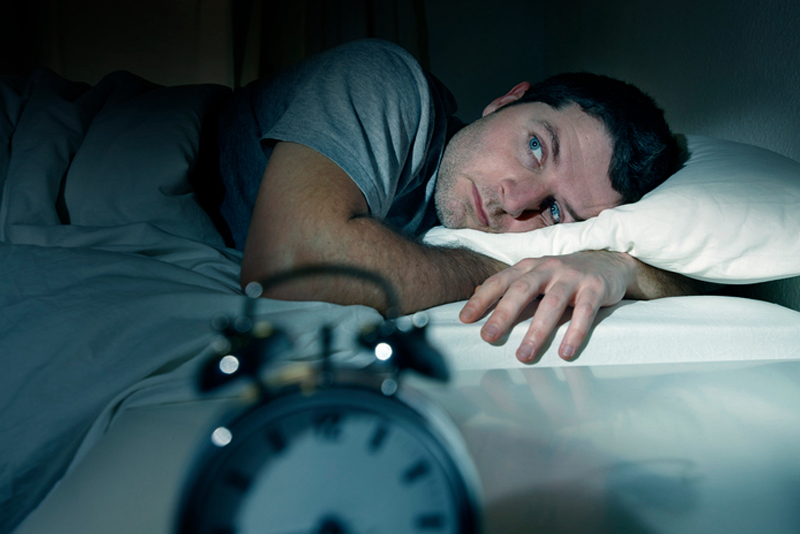How Long Can You Go Without Sleep? – Humans can only go without sleep for about 11 days (which we’ll get into later) [24]. Sleep is a necessity and the effects of sleep deprivation can be very serious. It affects our energy, concentration, memory, mood, and more. There is no way to avoid it and continue living a healthy and full life. In fact, there is no way to avoid it and continue living at all.
Many have wondered about their sleep habits while struggling to complete their day-to-day tasks when sleep deprived. Whether it is due to insomnia, stress, or a medical condition, a progressive sleep debt can lead to negative effects on the body’s systems.
While most people, even those with diagnosed sleep conditions, do not remain awake for a consecutive amount of days, going without sleep can affect all areas of a person’s daily life and well-being.
How Long Can You Go Without Sleep?
Sleep Deprivation vs Sleep Deficiency
Fatal Familial Insomnia
Short-Term Effects ∙ Prolonged Effects

Sleep-Wake Cycle
The sleep-wake cycle and the stages of sleep are critical to understanding why sleep is so crucial.
Sleep-wake cycles are dependent on a person’s circadian rhythm. This 24-hour internal “clock” cycles between sleepiness and alertness [1]. The hypothalamus in the brain controls each person’s individual circadian rhythm. The sleep-wake cycle works best on a consistent schedule [1]. However, many outside factors can affect it:
- Lightness/darkness
- Jet lag
- Staying up late
- Daylight savings time
- Hormones
- Medication
- Caffeine
- Pregnancy
Our circadian rhythms evolve as we age. They also vary naturally from person to person [1].
Generally, people benefit from following set sleep patterns:
- Newborns: 14-17 hours per 24-hour cycle
- 12 months: 10 hours at night, plus 4 hours of naps
- 2 years: 11-12 hours at night, plus 1-2 hour afternoon nap
- 3-5 years: 10-13 hours
- 6-13 years: 9-11 hours
- 14-17 years: 8-10 hours
- Adults: 7-9 hours [4]
How Long Can You Go Without Sleep?
Sleep Deprivation vs Sleep Deficiency
Fatal Familial Insomnia
Short-Term Effects ∙ Prolonged Effects

Stages Of Sleep
There are five stages of sleep. The first four are considered non-REM sleep. The fifth stage is considered REM sleep. Ideally, people undergo a full sleep-wake cycle every night.
During non-REM sleep, we progress from light to deep sleep until we experience REM sleep, the stage during which we dream. It takes about 90 minutes to cycle to REM sleep completely. Our brain waves and body react differently as we progress through each stage [3].
Stage 1 – Non-REM Sleep
This is the lightest stage of sleep. Breathing is normal. Muscle tone is present in the skeletal muscles.
Stage 2 – Non-REM Sleep
Deeper sleep is experienced and the person is harder to wake. An EEG reveals sawtooth waves and sleep spindles.
Stage 3 and Stage 4 – Sleep
Sleep grows progressively deeper during these stages. This sleep is referred to as slow-wave sleep (SWS), delta sleep, or deep sleep. An EEG shows a much slower frequency with high delta waves. People in this stage of sleep are very difficult to wake up.
Stage 5 Sleep (REM) Sleep
This stage is associated with dreaming. Breathing is irregular and erratic. Skeletal muscles are atonic. Heart rate may increase. An EEG resembles wake time [3].
How Long Can You Go Without Sleep?
Sleep Deprivation vs Sleep Deficiency
Fatal Familial Insomnia
Short-Term Effects ∙ Prolonged Effects

Sleep Deprivation vs Sleep Deficiency
Scientists notate distinct differences between sleep deprivation and sleep deficiency.

Facts About Sleep Deprivation
Sleep deprivation is the act of not getting enough sleep which leads to sleep debt. Sleep debt is the culmination of sleep loss. It can be caused by underlying medical conditions like sleep apnea, insomnia, or just by burning the candle at both ends [4].

Facts About Sleep Deficiency
Sleep deficiency is a broader concept. It includes the following:
- Not getting enough sleep (sleep deprivation)
- Sleeping at the wrong time of day (not in sync with a circadian rhythm)
- Lack of good sleep or ability to proceed through the stages of sleep
- A sleep disorder [8]
With either sleep deficiency or sleep deprivation, the natural sleep-wake cycle is disrupted, and the sleep stages are shortchanged. The consequences vary depending on whether the sufferer is experiencing acute long-term sleep issues.
“Our data are consistent with the idea that sleep is primarily devoted to the critical activities of repair and reorganization in the brain, not the whole body,” notes Van Savage at the Harvard Medical School and Geoffrey West of the Santa Fe Institute in New Mexico, “and that this reorganization probably includes learning and memory [9].”
In severe cases of insomnia, doctors explore the possibility of a genetic factor.
How Long Can You Go Without Sleep?
Sleep Deprivation vs Sleep Deficiency
Fatal Familial Insomnia
Short-Term Effects ∙ Prolonged Effects

The Risk Of Fatal Familial Insomnia
Fatal familial insomnia is often caused by a gene mutation inherited through a parent. However, it has been known to occur spontaneously, which is known as sporadic fatal insomnia (sFI) [7]. The person needs to inherit at least one copy of the specific protein mutation (PrPC) to develop this condition [8].
Familial insomnia is considered a prion disease meaning it is part of a rare, progressive neurodegenerative disorder. Symptoms include progressive insomnia, weight loss, lack of appetite, hallucinations, and dementia. Death typically occurs within 12-18 months after the first symptoms appear.
How Long Can You Go Without Sleep?
Sleep Deprivation vs Sleep Deficiency
Fatal Familial Insomnia
Short-Term Effects ∙ Prolonged Effects

Short-Term Effects Of Sleep Deprivation
The adverse effects of sleep deprivation start early. Even one night of poor sleep affects the way we function the next day:
- Brain drain, which affects short-term memory, long-term memory, and concentration issues.
- Mood changes, including irritability and moodiness. Anxiety or depression may escalate.
- The ability to balance, hand-eye, and other coordination abilities decrease.
- Blood pressure elevates [9].
How Long Can You Go Without Sleep?
Sleep Deprivation vs Sleep Deficiency
Fatal Familial Insomnia
Short-Term Effects ∙ Prolonged Effects

Prolonged Sleep Deprivation And Total Sleep Deprivation
Studies show that attention and working memory are adversely affected by sleep deprivation [10]. Being deprived of sleep long-term can have serious effects on your blood pressure and your overall health [11]. Other effects of sleep deprivation are the development of diabetes, heart disease, and obesity [12].
A lack of sleep plays havoc with your body’s systems. It is during sleep that the hormones that control your metabolism, appetite, and glucose are secreted. The body may also experience an overproduction of cortisol, the stress hormone [13]. An increased cortisol level combined with less insulin can lead to an increase in the glucose level in your bloodstream. This increases your risk of developing type 2 diabetes [14].
How Long Can You Go Without Sleep?
Sleep Deprivation vs Sleep Deficiency
Fatal Familial Insomnia
Short-Term Effects ∙ Prolonged Effects

How Long Can You Go Without Sleep?
As mentioned earlier, the answer is about 11 consecutive days.
How do we know this?
In 1965, 17-year-old Randy Gardner decided to answer this question for a science fair. He set a world record.
Gardner stayed awake for 264 hours (about 11 consecutive days). He and other research subjects were carefully monitored. None of the participants experienced serious medical, neurological, psychological, or psychiatric problems. However, all of them showed significant problems with concentration, motivation, perception, and higher mental processes. All of the individuals recuperated after one to two nights of recovery sleep.
The Centers for Disease Control and Prevention (CDC) recommend seven to nine hours of sleep for adults every night. Making up for lost sleep is not enough as it can still disrupt and cause harm to your body’s internal clock.
Medical experts agree that the three factors that contribute to good health are diet, exercise, and quality of sleep.
How Long Can You Go Without Sleep?
Sleep Deprivation vs Sleep Deficiency
Fatal Familial Insomnia
Short-Term Effects ∙ Prolonged Effects
How Long Can You Go Without Sleep, Sleep Deprivation Resources;
[1] National Sleep Foundation; What Is Circadian Rhythm?.
[2] Mayo Clinic; How Many Hours Of Sleep Are Enough For Good Health, Eric J. Olson, M.D., April 06, 2016.
[3] American Sleep Association; Stages of Sleep.
[4] Harvard Medical School; Repaying your sleep debt, May 09, 2018.
[5] National Institute of Health: National Heart, Lung, and Blood Institute, Sleep Deprivation and Deficiency.
[6] The Harvard Gazette; Sleep Found to Repair And Reorganize The Brain, William J. Cromie, Harvard Medical School; Van Savage, Santa Fe Institute in New Mexico; Geoffrey West, March 15, 2007.
[7] National Institute of Health, National Center For Advancing Translational Sciences, Genetic and Rare Diseases Information Center; Fatal Familial Insomnia, December 02, 2016.
[8] Centers For Disease Control and Prevention; Prion Diseases.
[9] Healthline; The Effects of Sleep Deprivation on Your Body, Ann Pietrangelo, Stephanie Watson, Medical review: Deborah Weatherspoon, PhD, RN, CRNA, June 05, 2007.
[10] US National Library of Medicine National Institutes of Health; Sleep Deprivation: Impact On Cognitive Performance, Paula Alhola, Paivi Polo-Kantola, October 3, 2007.
[11] US National Library of Medicine National Institutes of Health; Sleep Loss And Hypertension: A Systematic Review; Palagina, L, Bruno RM, Gemignani A, Baglioni C, Ghiadoni L, Riemann D., 2013.
[12] National Sleep Foundation; Exercise And Sleep, David G. Davila, MD, December 2009.
[13] US National Library of Medicine, National Institutes of Health; Sleep Loss Results In An Elevation Of Cortisol Levels The Next Morning; Leproult, R, Copinschi, G, Buxton, O, Van Cauter, E, October 20, 1997.
[14] US National Library of Medicine, National Institutes of Health; Sleep loss results in an elevation of cortisol levels the next evening, Leproult, R, Copinschi, G, Buxton, O, Van Cauter, E, October 20, 1997.
[15] Scientific American; How Long Can Humans Stay Awake?.




